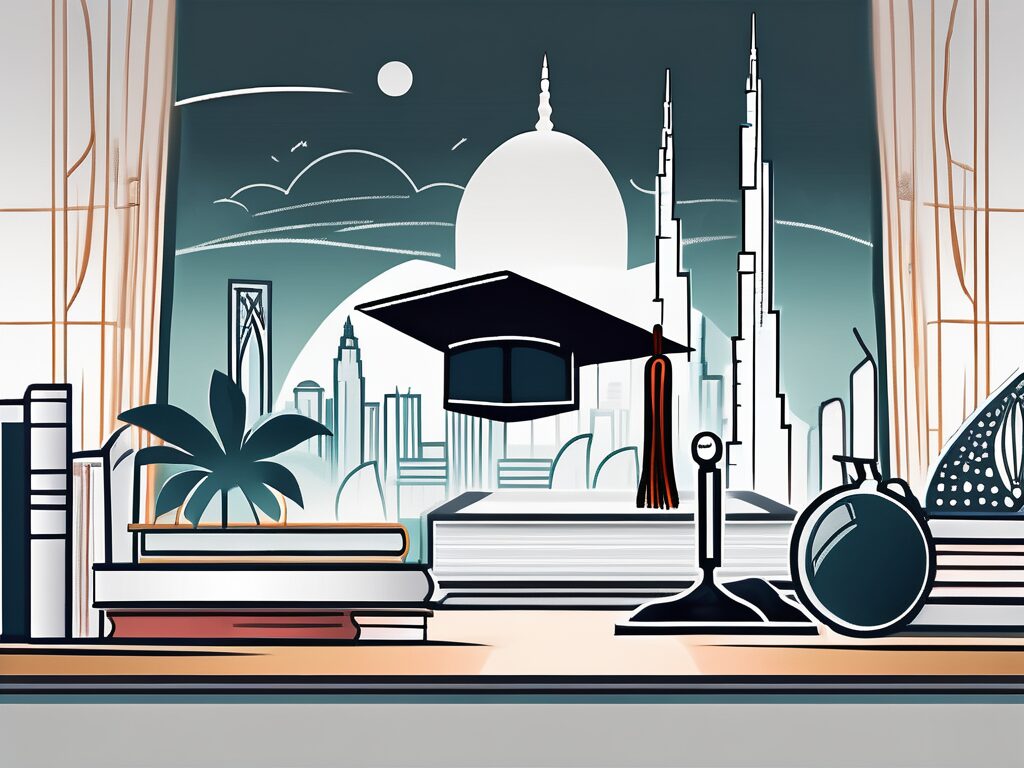The pursuit of a Master’s in Education in Dubai presents a unique set of challenges and opportunities. The city’s multicultural environment, coupled with its rapid development, creates a dynamic educational landscape. However, this can also lead to certain teaching and learning issues. In this blog post, we will delve into these issues and present four strategies to overcome them.
Understanding the Challenges
The first step towards addressing any issue is understanding it. In the context of a Master’s in Education in Dubai, there are several key challenges to consider.
Cultural Diversity
Dubai is a melting pot of cultures, with residents from all corners of the globe. This diversity is reflected in the classroom, where students come from a variety of cultural backgrounds. While this diversity can enrich the learning experience, it can also lead to misunderstandings and communication barriers.
For example, teaching styles that work well in one culture may not be as effective in another. Similarly, students from different cultures may have different expectations of the learning process. These cultural differences can create challenges in the classroom, but they can also be harnessed to create a more inclusive and effective learning environment.
Language Barriers
Another challenge is the language barrier. Although English is widely spoken in Dubai, it is not the first language for many residents. This can create difficulties in the classroom, particularly for students who are not fluent in English.
Language barriers can hinder communication and understanding, making it harder for students to grasp complex concepts. This can be particularly challenging in a Master’s in Education programme, where advanced topics are often discussed.
Strategies for Overcoming the Challenges
Now that we’ve identified some of the key challenges, let’s explore four strategies for overcoming them.
1. Culturally Responsive Teaching
Culturally responsive teaching is a pedagogical approach that recognises the importance of including students’ cultural references in all aspects of learning. This approach can be particularly effective in a multicultural environment like Dubai.
By incorporating elements of students’ cultures into the teaching process, educators can create a more inclusive learning environment. This can help to bridge cultural gaps and improve communication, making the learning process more effective for all students.
2. Language Support
Providing language support is another effective strategy for overcoming language barriers. This could involve offering additional English language classes or providing resources to help students improve their English skills.
Language support can help students to better understand the course material and participate more fully in class discussions. This can enhance their learning experience and improve their academic performance.
3. Collaborative Learning
Collaborative learning is a teaching approach that involves students working together to solve problems or complete tasks. This approach can be particularly effective in a multicultural classroom, as it encourages students to learn from each other’s perspectives.
By working together, students can overcome cultural and language barriers and develop a deeper understanding of the course material. Collaborative learning can also foster a sense of community in the classroom, making the learning experience more enjoyable for all students.
4. Continuous Professional Development
Finally, continuous professional development (CPD) is crucial for educators in a rapidly evolving educational landscape like Dubai. By engaging in CPD, educators can stay up-to-date with the latest teaching strategies and educational research.
This can help them to adapt their teaching methods to meet the needs of their students and overcome any challenges they may face. CPD can also enhance educators’ professional skills and knowledge, making them more effective in their roles.
Conclusion
Teaching and learning in a Master’s in Education programme in Dubai can present unique challenges due to the city’s cultural diversity and language barriers. However, by employing strategies such as culturally responsive teaching, language support, collaborative learning, and continuous professional development, these challenges can be effectively addressed.
By embracing the diversity of the classroom and continuously striving to improve their teaching methods, educators can create a positive and effective learning environment for all students. As a result, students will be better equipped to succeed in their academic pursuits and contribute to the multicultural society of Dubai.
Advance Your Teaching Career with The IQTS at UWE
Ready to tackle the unique challenges of teaching in Dubai and beyond? The International Qualified Teacher Status (iQTS) Programme at The IQTS at UWE is your gateway to achieving excellence in education. With our Level 7 qualification, you can overcome barriers to qualification, enjoy a 45% increase in promotion rates, and a 30% salary boost. Join a thriving professional community, gain a deep understanding of international curricula, and pursue professional development without compromising your current commitments. Make Your Next Step towards a transformative career in education today.

